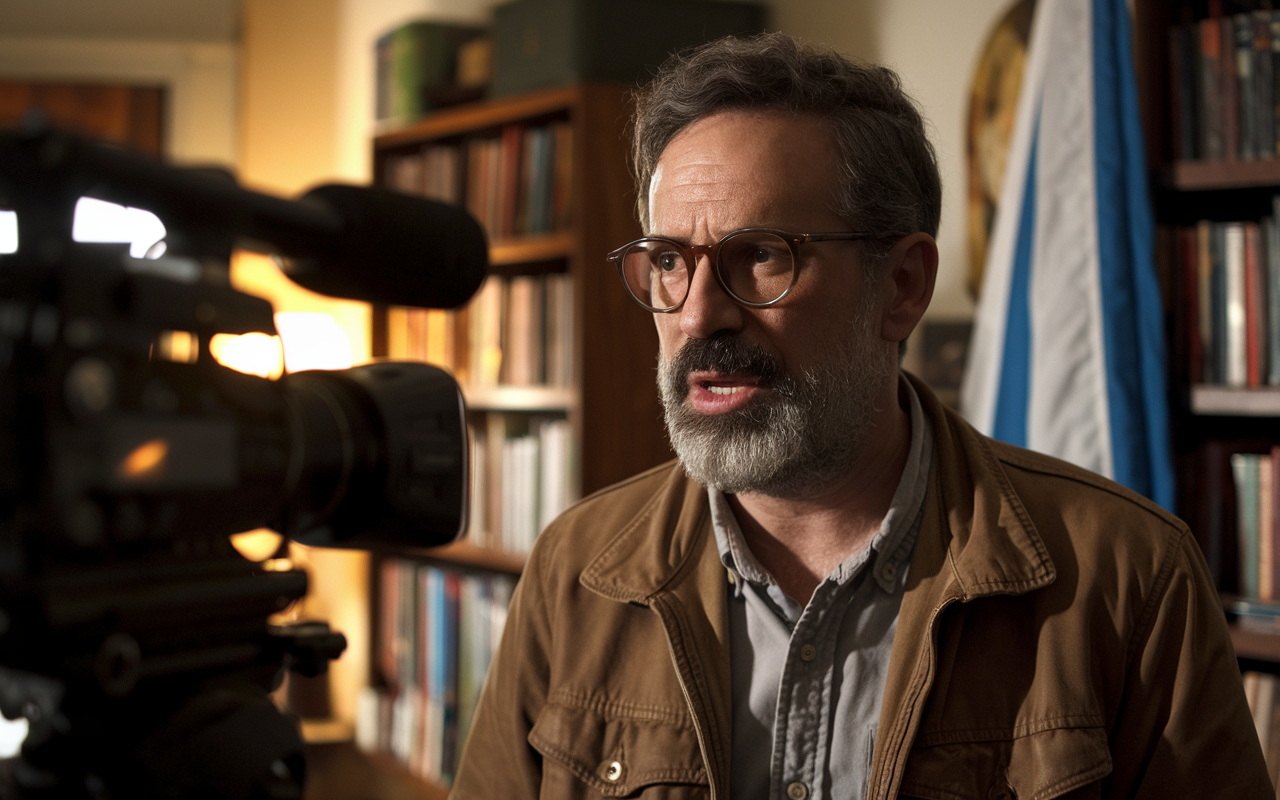🎬 Documentary Spotlight: "No Other Land" and the Voices of the Israeli-Palestinian Struggle 🌍
Hello everyone! 🎥✨ Today, I'm diving into an incredibly impactful documentary that is stirring conversations worldwide: "No Other Land." Co-directed by Basel Adra and Yuval Abraham, this film sheds light on the urgent and complex crisis unfolding in the West Bank, specifically in Masafer Yatta, a farming community under constant threat of displacement. The film has garnered significant attention, including an Oscar nomination, but more importantly, it seeks to bring awareness to an ongoing humanitarian situation that the world needs to see.
🌟 What Is "No Other Land"?
Since its premiere at the Berlin International Film Festival, "No Other Land" has received a slew of accolades, yet its distribution in the United States is surprisingly limited. As Adra and Abraham articulate, this is not due to a lack of quality; rather, major studios seem hesitant to tackle a film that portrays the violent realities faced by Palestinians. 🇵🇸💔
🎥 Personal Histories and Powerful Footage
Adra started filming his community in Masafer Yatta as a teenager. The footage he captured spans over two decades, documenting the relentless threat faced by his community. After meeting Abraham, an Israeli journalist, the two formed an unexpected alliance, sharing the mission to expose the injustices being inflicted upon Palestinians. Together with their fellow co-directors, they dedicated five years to combine their stories into a cohesive narrative, culminating in a film that asks viewers to confront uncomfortable truths.
🔍 Insightful Reflections
During their interview, Abraham highlighted the pressing need for continued activism, stating, "With the statue or without the statue, things are really, really, really bad." This resonates powerfully in today’s climate, reflecting the urgency of the film's message: we can't get lost in awards seasons or accolades while people are suffering daily. 🎭
Adra emphasized: "It's important for people to know the reality. A lot of times we feel a bias from the mainstream media." This sentiment calls for viewers to engage critically with media narratives and recognize the stories often left untold.
🕊️ A Call to Action
Ultimately, both directors want the viewers of "No Other Land" to feel a sense of responsibility and motivation to act. They remind us that while international attention is crucial, immediate and tangible support is needed to end these injustices on the ground. Their powerful plea? “The audience is our hope.”
The film's beautiful mixture of dread and hope encourages viewers not only to acknowledge the struggles but also to recognize the resilience of those living in these conditions. It subtly urges us to take a stand, advocate for change, and have those tough conversations that can lead to action. 💪🌈
🌐 Final Thoughts
In a world where silence equals complicity, it's essential to amplify voices like those featured in "No Other Land". Let's not just watch; let's engage. Share this film, discuss it with friends, and consider how we can contribute to making a difference. Thank you for tuning in, and let's keep the dialogue going!
🙌 What are your thoughts on the documentary? Have you seen it? Let’s discuss in the comments below!
[#DocumentaryFilm #NoOtherLand]

More Stories
Exciting News: The Summer I Turned Pretty is Becoming a Movie
Reflecting on Robert Redford’s Legacy of Integrity and Artistry
Sara Rivers Appeals Dismissal of $60 Million Lawsuit Against Sean Combs: A Fight for Justice in the Entertainment Industry